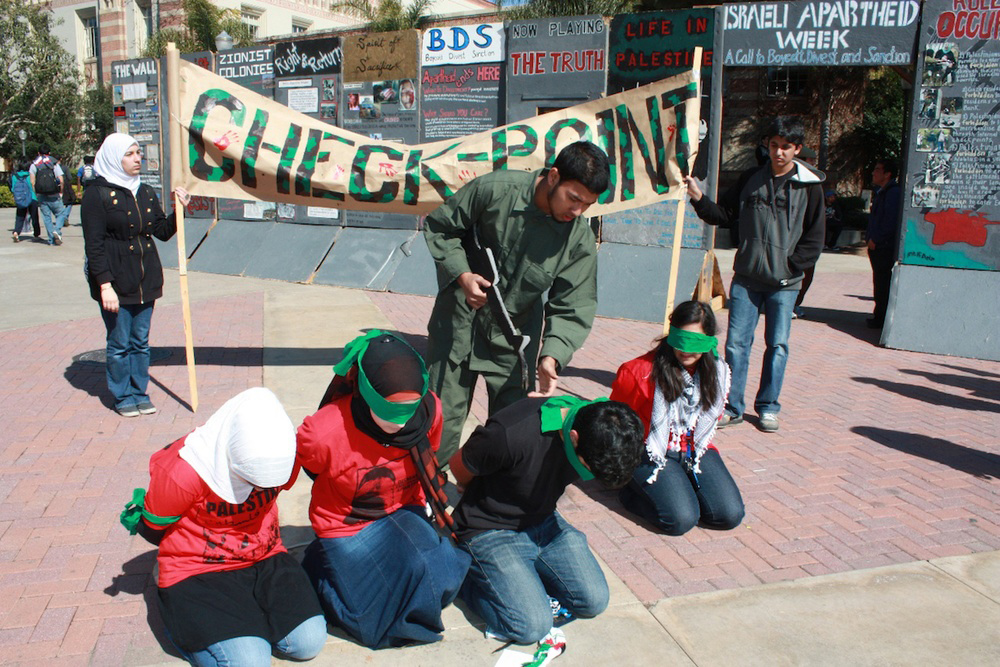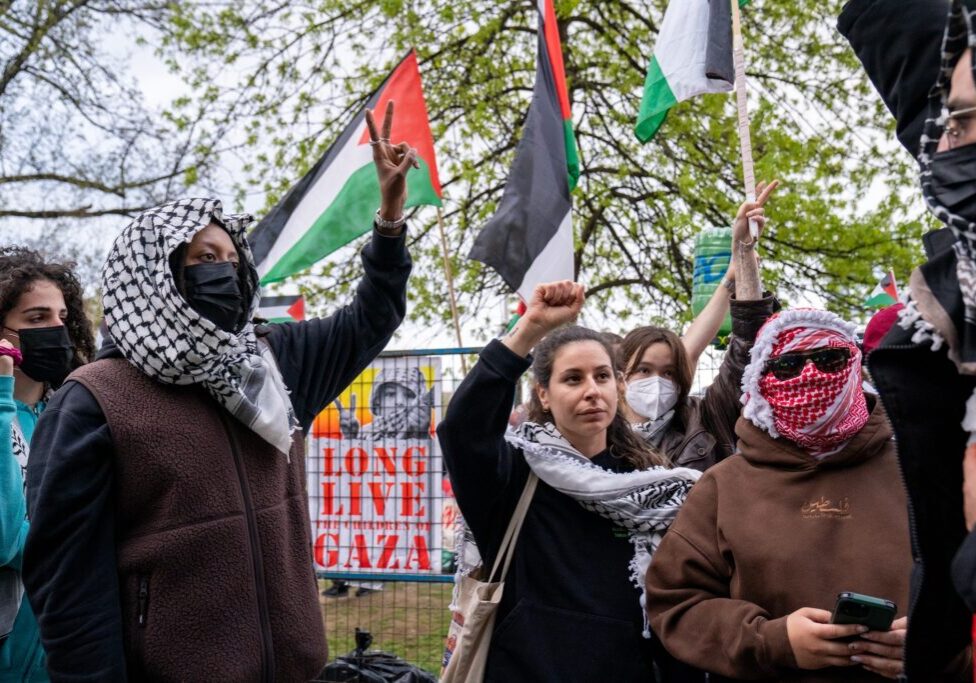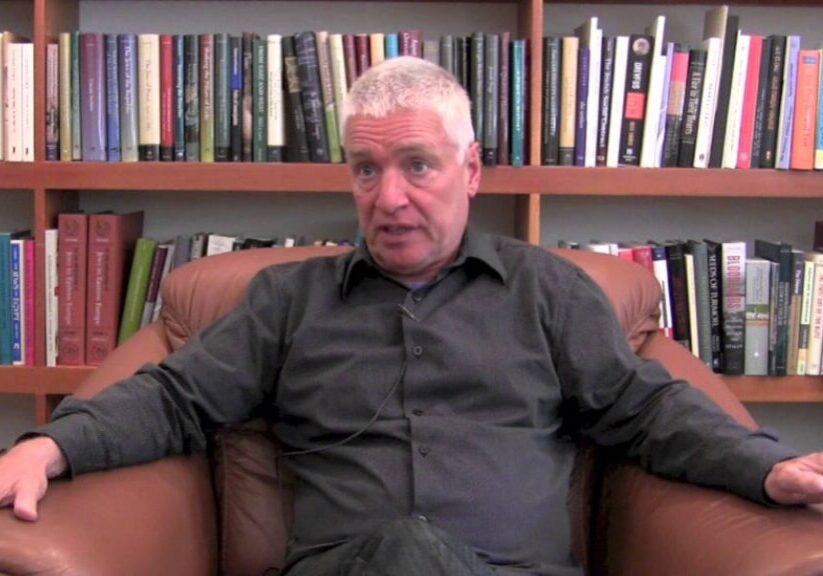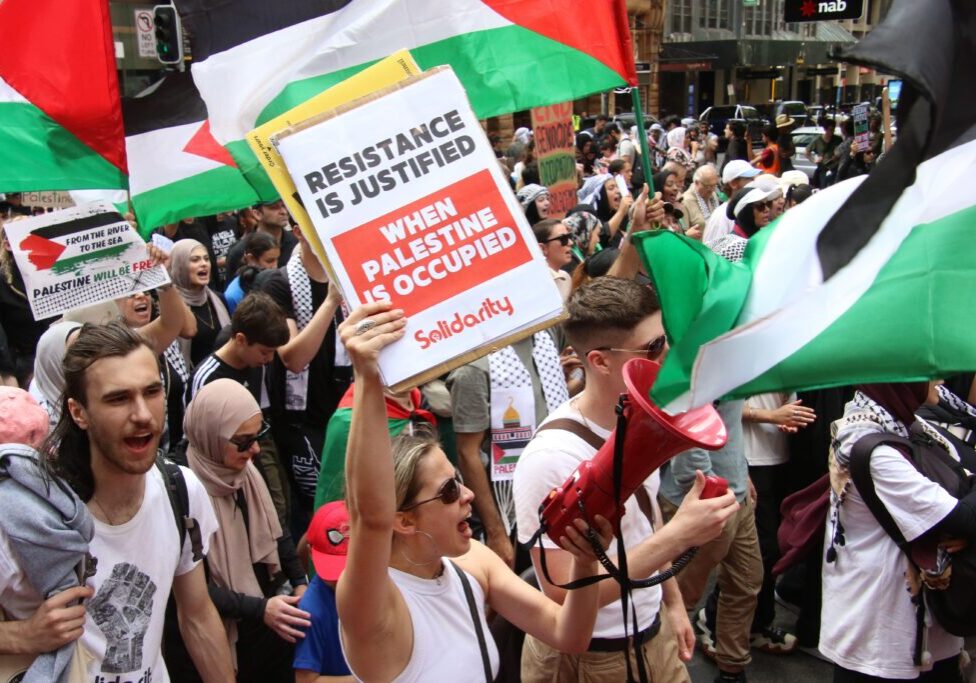Australia/Israel Review
Confronting BDS “macro-aggression” on campus
Mar 8, 2016 | Mark G. Yudof

Mark G. Yudof
The phrase “connect the dots” originally referred to a children’s game in which a bigger picture was revealed by drawing lines among the points. In adult lingo it became a metaphor for teasing out salient relationships often overlooked by the less subtle. The Boycott, Divestment and Sanctions (BDS) movement against Israel, moving to integrate itself with nearly every progressive campus cause, has put the metaphor on steroids.
Consider: A Jewish University of Massachusetts-Amherst student attended the Million Student March to rollback college tuition. His enthusiasm was considerably blunted when the group broke out into a cheer: “Not another penny, not another dime, no more money for Israel’s crimes.” Or, I recall a demonstration at UCLA, in which a group advocating disinvestment in fossil fuel companies joined forces with BDS advocates.
If you are worried about the cost of college or the well-being of the planet, Israel is high on the BDS list of culprits. Such an Orwellian turn is reminiscent of pogroms and annihilations when Jews were blamed for everything from famine and disease to the crash of markets and military losses. Just substitute “Israel” for “Jew” and the script is familiar.
But the BDS strategy is also a blatant attempt to co-opt the language of human rights: Israel is a settler nation, a bastion of white privilege, a racist and apartheid state, and a perpetrator of alleged genocide.
The road from alleged police misconduct against African-Americans in Ferguson and elsewhere is said to be connected to the plight of the Palestinian people. In student debates on BDS resolutions, it is shouted, not whispered, that Israeli soldiers deliberately kill children and harvest organs from living beings. In an age of exquisite sensitivity to subtle “micro-aggression” in choices of language, such macro-aggression largely goes un-noted.
BDS challenges not only Israeli policies, but also its legitimacy and right to exist. Doubtless, some Israeli policies aggravate and exacerbate the situation. But at bottom, BDS seeks demolition of the Jewish state and not reform of its policies. As Omar Barghouti, a co-founder of BDS, has stated, “Most definitely we oppose a Jewish state in any part of Palestine.” No two-state solution here.
The symbolism should not be lost on anyone. University boards have not endorsed BDS, but that is not the overarching objective. The objective is delegitimisation. The goal: not better policy, but no polity.
The BDS narrative also often strays into antisemitism. Jews are portrayed as privileged, powerful, rich and politically nefarious. They have too much influence with Congress, state legislatures, media, corporate sector and non-profits.
When I was President of the University of California, a group of student leaders informed me that the First Amendment to the US Constitution protected only marginalised peoples – self-defined – and not the privileged. Hence no problem if there is an attempt to silence campus speakers like the Israeli Ambassador or the philosopher Moshe Habertal or an Israeli soldier – the “privileged” have no speech rights. And Jews (and college administrators and perhaps all with whom they disagree) are privileged. If the effort to silence pro-Israel speakers is defeated by police intervention, that intervention itself is viewed as a violation of the rights of the marginalised.
Whether deliberate or not, a rash of indefensible, antisemitic behaviours is stirred by the BDS movement: phony eviction notices to Jewish students in residence halls, calls for an intifada in America, swastikas on Jewish fraternities, questioning of Jewish students’ suitability for student government offices, efforts to disqualify students from elected office if they received a free trip to Israel, and the like.
The distinction between Israel and Jewish people is frequently lost.
In this light, a large group of distinguished academics and administrators at leading American universities recently launched the Academic Engagement Network (AEN). Its purposes and principles include catalysing robust campus debates on Israel and BDS, and defending academic freedom against assaults from those who would shout down speakers.
A key part of the AEN agenda must be to re-establish bridges between the Jewish community, communities of colour on campus, and progressive organisations. All too often, largely because of the strategy of the BDS proponents to treat the road to perdition as lined with Israelis – whether in immigration reform, police misconduct or global warming – to be a campus progressive is to be anti-Israel. To engage in dialogue with Jewish students and organisations over the issues that divide them is a tacit recognition of the legitimacy of the Jewish state. Hence they often refuse to join in robust debate.
My principal fear is not that the BDS movement on campuses will injure the Israeli economy or isolate Israeli universities. My greatest fear is that future leaders will be viscerally anti-Israel because of the distorted discourse on today’s campuses. What happens on campus never stays on campus.
Mark Yudof serves as the Chair of the Academic Engagement Network advisory board. He is President Emeritus of the University of California and previously served as chancellor of the University of Texas System and as president of the University of Minnesota. © Times of Israel (www.timesofIsrael.com) reprinted by permission, all rights reserved.
This article is featured in this month’s Australia/Israel Review, which can be downloaded as a free App: see here for more details.
Tags: Anti-Zionism






